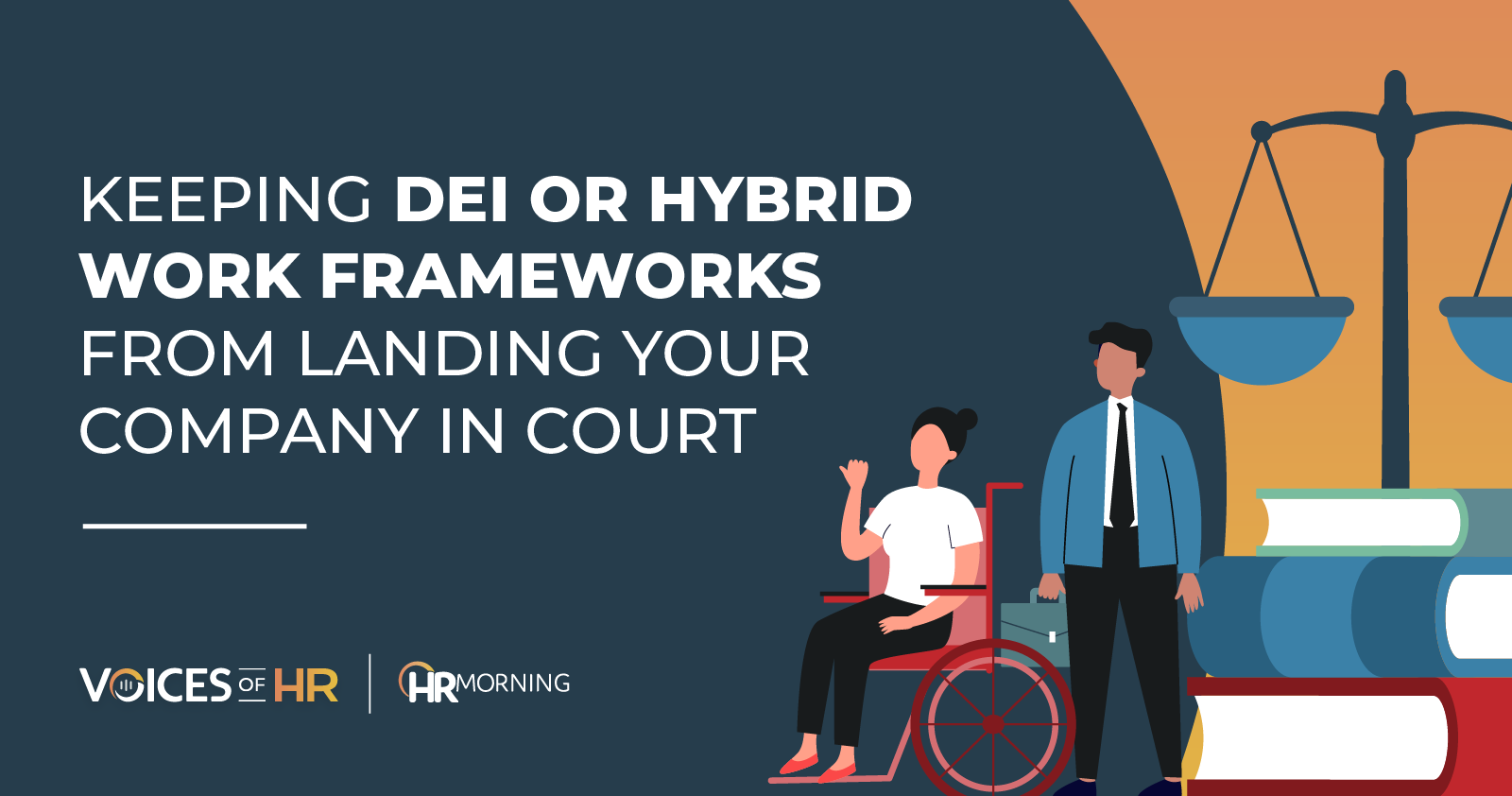Minimizing legal risks while advancing key workforce initiatives: A delicate balance for HR

Keeping workers engaged and purpose-driven is an important part of HR’s job, but so is avoiding legal risks related to the Fair Labor Standards Act, Family and Medical Leave Act (FMLA), Equal Employment Opportunity Act and more.
In an episode of HRMorning‘s podcast, “Voices of HR,” employment attorney Katherin Nukk-Freeman offered helpful insights for HR regarding Diversity, Equity and Inclusion (DEI) strategy and post-COVID hybrid work legal considerations.
Legal risk and DEI
As well-intentioned as a DEI plan may be, it can end up exposing an employer to unnecessary legal risk, such as reverse discrimination lawsuits.
“(DEI) plans have to be aspirational. You want to be setting goals and not mandates. There’s no legitimate legal quota,” said Nukk-Freeman, co-founding partner of the law firm Nukk-Freeman & Cerra PC. “Especially in the hiring context, for example, you want the language to be about casting … a wider net so that you can bring in more candidates from more diverse backgrounds, knowing that you’re going to hire the most qualified candidate and you’re not going to hire that candidate because of their race or their sex or their national origin.”
And be aware that hidden legal risks may arise from DEI training.
“Say, for example … a company brings in a DEI trainer, and they have a roomful of managers, and they’re talking about issues within the company that need to be resolved, and experiences people have had, and what types of discrimination those individuals may have experienced at the organization or seen. … If people are disclosing that information, none of that is deemed attorney-client privilege. … If there is a harassment lawsuit or discrimination lawsuit … they can come back and bring the substance of those conversations into the lawsuit as proof that the company knew this was going on,” said Nukk-Freeman, who is also the president of SHIFT HR Compliance Training.
Legal risks in the hybrid workplace
And if you’re continuing to offer employees a hybrid work option, remember the onus is on employers to continue to follow wage-and-hour laws, make Americans with Disabilities Act accommodations and provide FMLA leave, even when employees are working remotely.
“Are your employees working more than you intended them to, and are you paying them for it?” Nukk-Freeman said.
“Another challenge that we’re seeing employers have to deal with is handling requests to work remotely, consistently from a disability or a leave perspective. So you may have some employees who say, ‘Yes, I know you’re trying to return everybody to the office three days a week, but I can’t. I have a medical condition that prohibits me from returning to the office. And by the way, I’ve been able to show that I’ve worked in my job and accomplished what you needed me to for the past two and a half years, so you’re going to have a hard time showing that it’s an undue hardship to allow me to continue this way indefinitely.'”
“You definitely want to make sure you get legal analysis, (either from) your in-house employment counsel or your outsourced employment counsel, to weigh in and walk you through … what you need to be doing,” she said.

